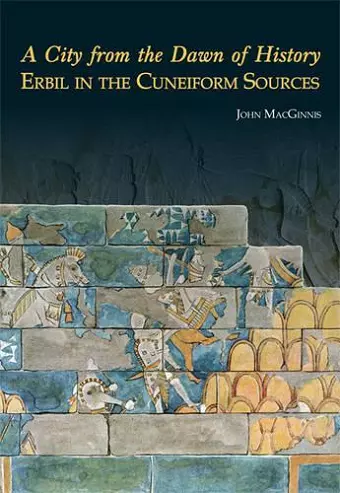A City from the Dawn of History
Erbil in the Cuneiform Sources
Format:Paperback
Publisher:Oxbow Books
Published:4th Nov '14
Currently unavailable, and unfortunately no date known when it will be back

The city of Erbil, which now claims to be one of the oldest continually inhabited cities in the world, lies on the rich alluvial plains at the foot of the piedmont of the Zagros mountains in a strategic position which made it a natural gateway between Iran and Mesopotamia. Within the context of ancient Mesopotamian civilisation there can be no doubt that it will have been one of the most important urban centres but archaeological research of the remains has been limited. Three recent archaeological assessments of the mound have sought to evaluate the significance of the remains within their historical context. This work is dedicated to the cuneiform sources of information.
There are a number of references to Erbil in Eblaite and Sumerian administrative texts of Akkadian (2334 - 2193 BC) and Ur III (2120 - 2004 BC) date and hundreds of references in Akkadian texts from the 2nd and 1st millennia; only two of which may actually come from Erbil. There are a handful of references in unpublished Elamite texts from Persepolis. In Old Persian the city only appears in the corresponding version of the inscription at Behistun belonging to the Achaemenid period (539-330 BC). There are no references in Hittite, Hurrian, Urartian or Ugaritic sources. The sources include a wide variety of administrative texts, royal and other inscriptions, letters, votives and lexical texts.
For the future of ancient Near Eastern studies, there needs to be more publications like this one with the potential to reach a wide range of reader well beyond the traditional scientific archaeological community. * Ancient Near Eastern Studies *
ISBN: 9781782977971
Dimensions: unknown
Weight: unknown
148 pages